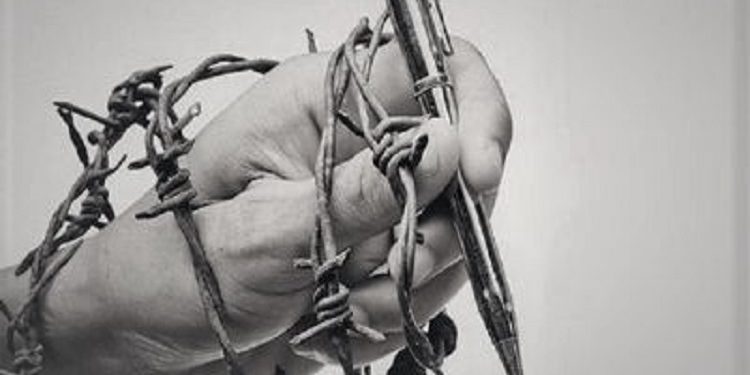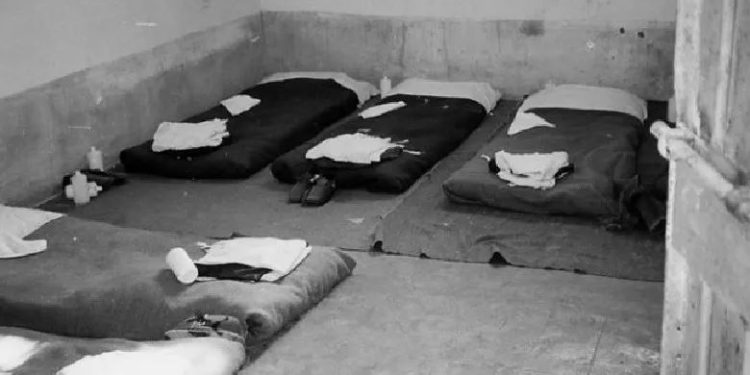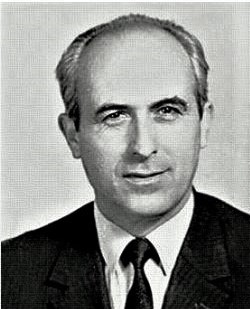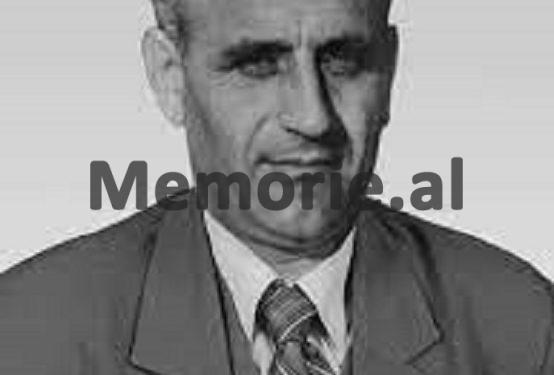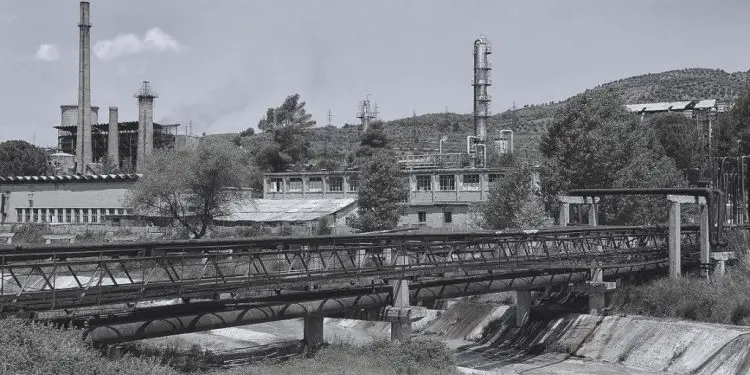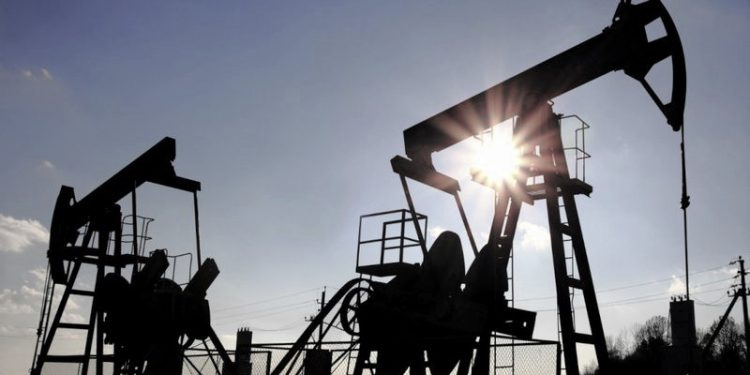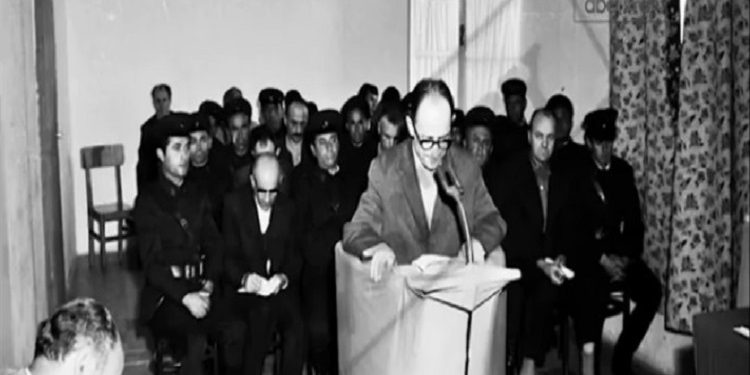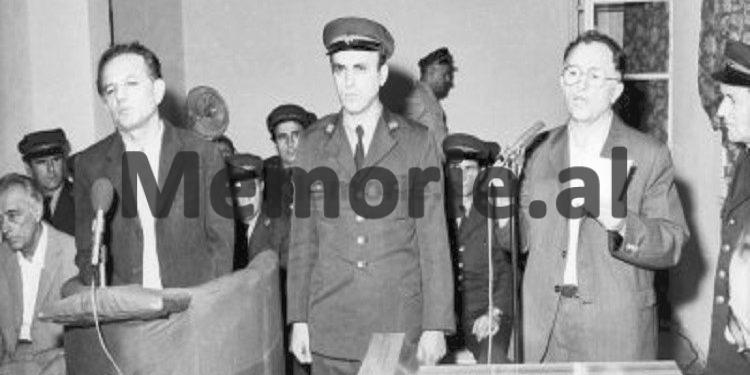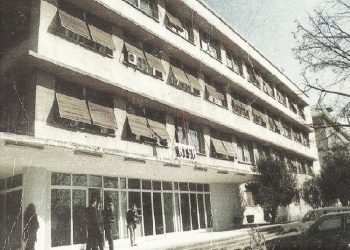By Petraq Xhaçka
Part eleven
Memorie.al / The purpose of this book is to join the efforts made to present the truths and horrors of the communist dictatorship in Albania. The main purpose of the book is not to show our people or anyone else, that we oilmen have been innocent, because this has become known from publications in our press, from foreign televisions, as well as from direct meetings with the International Forum and the Albanian Human Rights. The author’s desire, is that through this story, together with other stories, fight any manifestation in any form, even moderate, that he may have to create a communist society. I think that even through this bitter personal history, the cruel, treacherous and overbearing face of Enverism will appear, that for half a century, held the knife with the tip in the chest of the Albanian people, with a pine eye, intercepting the movements for salvation from the outside, or rebellion of the people themselves, ready to push the knife to the heart, at the first movement. The events are set in the economic fields where it has appeared most strongly, such as the oil and gas industry, where I was fortunate to pour my energies, for a lifetime, and become a participant and witness in those events. All the events that are written in this memoir are true, not only without any exaggeration or embellishment, but perhaps, I don’t know how much I was able to present the terrifying force of the events that took place in that decadent system of socialism, where no there was no human feeling.
Continues from last issue
Dungeon Meditations
To convince me to accept the indictment, the investigators told me that; only two or three people knew about my arrest and that of the group. So I came to the conclusion that this was primarily the work of the top of the dictatorship pyramid, which had drawn up the scenario, while the Ministry of the Interior, which was tasked with realizing this scenario, by choosing the candidacies of grassroots specialists, who would be assigned the role of actors, in this great dramatic performance. This ministry, in cooperation with the heads of the investigation and prosecution, has made the choice. Furthermore, she had assigned the task to her subordinates, specialized in the art of violence, to try with all means, to kill the mind and make the crime we did not commit into a body, because she needed to be as convincing as possible to justify our arrest.
During the prison that I did later, I had the chance to get to know a former important employee of the Ministry of Internal Affairs, but who was convicted and he, as a political convict, should have served ten years in prison. The real reason for the imprisonment was that during the investigation of a defendant, he only brought out that enemy in the field of violation of party guidelines and for other wrong actions in the army. But he did not embroider the process, so that the defendant would come out as an agent of foreigners. In the trial, this cadre of the Ministry of the Interior, who defended and continued even during imprisonment, wrote letters of exoneration, saying that he had acted according to the guidelines he received from the Central Committee of the Party. It was written that he had acted as they had ordered him and as an investigator, he had followed the order meticulously. He forced the unfortunate to accept everything.
– “But no one told me to take him out as an agent,” he defended himself with his right. – That’s why I didn’t do it either. That’s what they told me, that’s how I took it out. In the end, they told me to close the investigative process and submit the indictment, that I had it in order”.
From this testimony, from the experience of our investigative process and from the hundreds and hundreds of other examples that we were given the opportunity to learn in prison, we deepened our knowledge of how people were punished for things that they not only did not commit, but also had such thoughts. A person could suddenly find himself in connections and collaborations with people he had never known before and would not even become one with, even to perform charitable works. And no longer hostile! We, therefore, were not the only victims of the investigation. Before, I had not even had the idea of this dirty work in such large proportions, as often and the imagination, it is difficult to create, that was done by the organs of the dictatorship and justice of the Albanian communist state.
As soon as I was arrested, in addition to the secret tracking, the preliminary persecution began against me, so that the respect and authority I enjoyed among the oil workers, thanks to my many years of work, gradually weakened. For two people from our group, they were able to catch some statement against the leadership and the party, which justified their arrest, under the article of agitation and propaganda. As for me, despite all the organized provocations, they could not find anything like that.
Secondly, nearly ten years had passed since the conviction of the first group of oil workers. Now, the approach of the Labor Party congress, to be convened in November 1986, required scapegoats for the non-implementation of the inflated and artificial plans that had been announced with great fanfare, for propaganda purposes, at the previous congress in 1981. To justify these failures, of course, the party could not come up with self-criticism. Drawing up balloon plans, without a technical basis, could not even be discussed. It was easier and more trouble-free for them to fabricate an alibi with a new group of saboteurs. This, on the one hand, helped to shift the people’s attention from the real causes of the non-realization and deterioration of the economic situation in our country; while on the other hand, it kept the oil specialists under a great pressure of fear. They always thought that, with fear, geologists would find more oil and gas. For the communist leadership of the state, the man was nothing.
They could crush a man with their feet, as a fly is crushed, and boast like peacocks that they killed the fly. They were proud of the crimes they committed against those people, who dedicated their whole lives to dedicated work for the good of the people. The more the leaders of the communist party raised their voices, parroting the Stalinist saying, that; “man was the most precious capital”, the more they raped the life of the innocent man. On the blood and misfortune of others, the politicians and the people of the organs of the dictatorship, raised their authority and happiness.
Thirdly, based on biased judgments, the leaders of the country thought that I recently seemed dissatisfied with many things happening in the country and had reduced the effectiveness of my work as a result of this dissatisfaction. This judgment was completely unfair. He had no basis. But it was easier for them to come to this judgment than to kill their minds and understand the reality, which showed that the opportunities for discovering new resources were diminishing excessively. The intensive research of the last twenty years had made it possible to fully clarify all the prospective areas and these areas were limited.
They were not even based on the sound scientific opinion of the specialists, but opposed to them the convictions of Enver Hoxha, on the supposedly great prospects of our country for oil and gas. Trapped within the walls of these anti-scientific thoughts, they judged that by imprisoning a group of specialists with experience in oil exploration, they would force us, at gunpoint, to find new sources. They did not understand that we, the specialists, really loved the country and the people as the most precious thing, while they loved themselves, the happiness of their families. For us, they were two separate things: the country on the one hand and the political system on the other.
They needed the people of the country, like slaves and property, to build a luxurious life for themselves. This was the real difference between us and the senior party leadership. They condemned us with their term stale; “in the name of the people”, but in fact, they were punishing innocent people “in the name of their personal interests”. They acted as real samples. This judgment of mine, for one of the reasons for our arrest, reached in the conditions of a dungeon full of moisture, lying on a “bed” consisting only of a stinking blanket, with a daily regimen, where monstrous torture, occupied the most of the time, it was completely accurate.
Life proved this later, after receiving the sentence. Although I did not know which persons had been arrested, but with the names I knew before my arrest and the few I learned during the investigation, I formed the belief that we were a complex team of geological specialists, a sufficient team, to carry out general studies under regime violence. Often, during the investigation, they told me to accept the charges in order to save my life, and then they themselves would create the conditions for me to study in prison. And only a few months later, before the investigation was over, they brought me a study of the Institute, to give opinions on the design of a new well.
And think, in those conditions of terror, in that blackguard dungeon, where even the pigs would not agree to be kept, I lay for hours in semi-darkness, lying on the maps, on the sheets written by the design group. I studied and over-studied them attentively, as if everything was normal and at the end, I even presented my remarks and considerations. I figured they were testing me if I was willing to work later. And I wanted to survive, to see the people of my family, to proclaim in front of all the people, my innocence, my truth, and that of my colleagues.
Fourthly, from the harsh character of the investigation, I realized that the more I tried to defend the truth, the more they, without any hesitation, would give me the capital punishment, because justice did not exist, and other organisms or people who to protect us, there was none. The laws were inhumane. The investigators, with the greatest ease, with the tortures they had used up to that time and with the most severe ones they could do in the future, could lead to my physical disappearance. Under these conditions, I also judged that I should accept the charge, as they had decided in their dungeons, without bothering anyone, even my colleagues. What would be the moral meaning, I thought, to endure on my body, all those tortures, to give permission for the upper level of persecution against my family, when they, as always, did not retreat from the path they had started?
Whether I accepted or not, I would be condemned as an enemy. Even, in the case of non-acceptance, the punishment would be more severe: capital. This was the reality of Albanian justice at that time. It was the investigation with the special orders of the party, which determined the extent of the punishment. It was the investigator, the one who was “waiting for the piece of the suit”, while on the other levels, later, we would have mere formality. Likewise, where was the morality, I thought, for me to risk my life? Why?! Working with honor all my life had not served me as protection. They had arrested me, they were torturing me without a thorn entering my leg, and still no one was protecting me. Why would I give my life then?
For what purpose?! All this dirty game and this disgusting situation were created by those, the powerful, who arrested me and would punish me. It was no shame to be afraid of them! In those extraordinary moments, difficult for my life and that of my family, I used to look back on the whole past. How since childhood, I risked, not only for the freedom and independence of the country, but also for justice and democracy. And with this dedication, I learned and worked in my early youth, with this piety, I studied at the university, I worked later. I remembered the moment when I was only twelve years old, when I was arrested by the servants of the conquerors. I was surprised that they had facts that I was involved in actions against them, and again they judged that, due to my young age, they should release me.
And these monsters of the investigation, who had now become masters of this Albania without foreigners, how could they not have the least human feelings, but persecute specialists whom the country had honored?! When I, in 1944, was in the police dungeons, I was neither afraid of death nor did I ever cry, because I was proud that I, too, was something for the country of my people, I was not at all a nothing, or worse, a trash. But now, where should I support my pride?! In that building that terrorized the people that terrorized specialists, scientists, workers and honest sons of the country?! No!!
For me there were no more ideals. My country had returned to a slaveholding system, which only hatred could stop. Now I was forced to think, only for myself, for the people of my family, so that they would not lose their loved one. So, in this way, I judged it most reasonable to admit, that I had done what I had not done at all, to agree to become an actor in that tragic play, built according to a script by the high leadership of my wretched country. A scenario that was created and appeared and appeared, the same, as many times as they needed…!
Black clouds of the approaching storm…!
In the years 1971-’75, oil production in Albania increased several times compared to that before the 60s, and exceeded 2.3 million tons of oil per year. The discovery of the source of natural gas in Divjaka made it possible to greatly increase the production of natural gas, and to put it to use for the chemical industry.
This success of oilmen, which was primarily related to the discovery of new resource sites and the expansion of the contours of old resource sites, for the period 1961-1968, made it possible for our country, isolated politically, economically and militarily from the world, to respond to the needs in this self-isolation, in this self-asphyxia, which Enver Hoxha’s policy was causing.
Of course, the party leadership did not feel the isolation that much, because they lacked nothing. And they lived in isolation, but among all good things. It was the people who felt the suffering from the lack of freedom, from the lack of food to live normally. It was the people who stood in line day and night to get a little milk, just for the children, a little sugar and a little fat. Precisely in order to somewhat alleviate the dissatisfaction of the people, on the occasion of the November 1974 holidays, the party leadership, feeling the important positive role of the oil sector, decided to decorate the leaders and oil specialists, including giving to some individuals, of the title “Hero of Socialist Labor”
The decorated people and their families rejoiced at this high moral stimulus. I say moral only, because the title was not accompanied by any monetary reward. Of course, along with the decorated ones, the other oil workers were also happy, because they saw the decoration of those employees as an appreciation of the sacrifices of all the oil workers. But unfortunately, the joy of these people, the oil workers and their families, faded very quickly. Groans and cries took the place of smiles and toasts, while handcuffs took the place of decorations.
It was February 1975, when I was informed that the next morning, I had to appear before the Prime Minister, in a meeting that the government would hold about oil. I was not clear why they were inviting me. I was not in charge of any institution, nor did I deal with research, for which the government sometimes invited us from the Geological Institute to help clarify various problems. I thought it would be a meeting where I wouldn’t feel any particular tension, since I had neither to report nor to give an account. Rarely, on that eve of the presentation to the prime minister, I felt very calm. Usually, when the oil meetings were called in the center, or when the annual active conference was organized, they were very heavy events, with high nervous tension, accompanied for a long period, with insomnia. They often took the form of open trials.
I was traveling on the way to Tirana, enjoying the natural beauties of our country. It was funny, because the car was going fast, I remembered that looking left and right had been a rare, even forgotten pleasure for me. I had been making trips to the capital for years with my brain overloaded with work problems. Often, my mind was grinding only the account that I would have to give, when kilometer after kilometer I got closer to Tirana. We had, in many cases, not to say in all cases, a feeling of anxiety that kept me occupied because of the threats and warnings that Enver Hoxha or his people made, unhappy with the progress of our oil affairs. Such feelings never allowed you to engage in such trifles as the contemplation of roadside sights, so necessary and natural for other mortals of those years.
It never occurred to me that on that day, I would be present at a terrible trial, which would be done not to the real criminals, but to the leaders and specialists, who had spent their whole lives in wells and probes, and enjoyed dozens of years, the full respect of thousands and thousands of oil workers. Likewise, I never thought that; “behind that list,” my name was also lined up. I would listen to that “music” later. Upon entering the government meeting hall, where there were a large number of guests from the ministry, the General Directorate and the Petroleum Institute, I felt that the air was charged with a tension and a grave silence, which raised the eyebrows.
The entrance of Prime Minister Mehmet Shehu into the meeting hall, we who were present, waited by standing up. – “Before we start the meeting of the government, for the oil industry, – he began gravely, – I want to inform you that we have invited leaders and specialists of the sector”. None were sipping. You could hear the rustling of papers, which Mehmet Shehu was stirring with his hands. He continued: – “I will read to you the speech given by our leader, Comrade Enver Hoxha, at the meeting of the Political Bureau, on the problems we have in oil”.
He started to read. He was stunned. An expression of tension and fear had conquered all of us, especially the management specialists, who were mentioned by name, for harmful and sabotaging activities. It was the first time in my life that I attended a meeting where I saw people present being spoken of as hated enemies: I had read names and accusations in newspapers and bulletins, but I never believed that I was in such an environment like this one, where people were being punished, with whom my work had connected me for years.
There was nothing uglier than to see people who had dedicated their whole lives to the people’s struggle for liberation from foreign invaders and later to work for the good of their country, being branded as enemies. They had never been put in opposition to state politics, regardless of the thoughts, on its wrong ways, thoughts these deeply locked, that any or even all of them might have in their minds.
Here, before my eyes, for the first time, one of the most typical tragedies of the Stalinist system was unfolding. In the dictator’s speech, Lipe Nashi, the general director of oil in those years, was condemned for hostile sabotage actions, among others. He was sharply targeted, mainly for the poor results in oil and gas research, for the last five years, but also for the motive of introducing the practices of the Yugoslav administration itself. They were convicted because with a part of the funds received, above the level of the planned profits from the export of oil, he ordered and bought some medical equipment for the hospital in Fier.
The equipment was purchased, in need of the hospital service of the oil workers, who made countless sacrifices. The city hospital, at that time, had radiological and monitoring equipment that was very outdated. Lipe Nashi did this action, not without agreeing with the chairman of the State Plan Commission and the Minister of Mines, even in accordance with the decisions issued by the government. But these could not constitute protection for him. It did not constitute protection for him, not even the famous order of the Party, to take care of the workers. The incident with the hospital equipment had long tails afterwards. The expenses for them were mentioned and charged in court, even to the members of the Political Bureau, Abdyl Këllezi and Koço Theodhosi, before they were shot!
The most painful thing was to remember that this director, Lipe Nashit, only two months ago, had been granted the high title of “Hero of Socialist Work”! Now it was this same man, who for the same period of work, was called “enemy of the people”, saboteur and many other hateful epithets. In his speech, Enver Hoxha strongly emphasized that he came to the conclusion that; in the oil industry, hostile work was done, not only out of self-doubt. It was triggered by a letter from a worker of the Oil Extraction Company in Saranda! Memorie.al
The next issue follows




